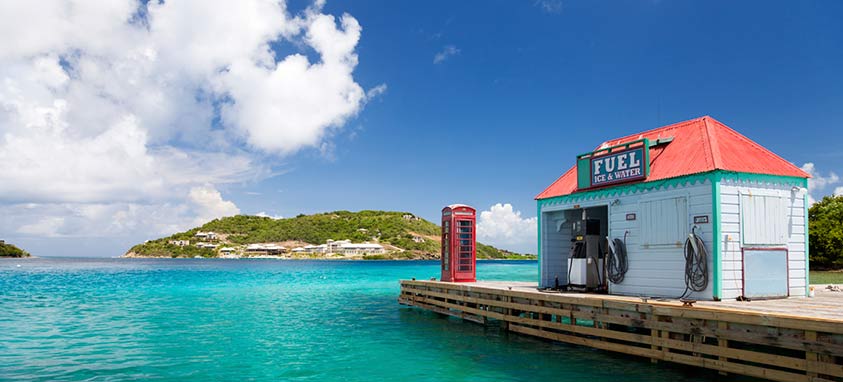Not everyone is toasting the news that Cuba may soon be opening its doors to unrestricted travel. Caribbean tourism officials are concerned that the recent shift in U.S. government policy may result in a loss of visitors to other Caribbean islands, and they are stressing the importance of working together to promote regional tourism.
The Caribbean Hotel & Tourism Association (CHTA) predicts that effects of Cuba on Caribbean tourism will be “unprecedented.” On June 18 the organization released a white paper entitled, Cuba: The Great Disruption for the Good of the Caribbean. It opens with a bold statement: “The biggest and most disruptive pebble to be dropped into the Caribbean pool in 50 years will arrive with the opening of travel to Cuba for United States citizens.”
Cuba Presents Tourism Challenges and Opportunities
CHTA points out that the removal of travel barriers to Cuba presents the Caribbean with both challenges and opportunities. Almost three-quarters of visitors to the Caribbean come from the U.S., and up until now, other Caribbean islands have not felt competition from Cuba. For decades, CHTA believes the region has relied on its sun and beaches, but more importantly its proximity to the United States, the largest economy on earth, for its success. The organization believes the emergence of Cuba as a bona fide travel destination will give the Caribbean “a good shake up.”
In the paper CHTA writes, “The coming Cuban disruption just might be the tonic that the countries need individually and collectively to build the kind of strategic approaches to tourism development that will yield sustainable results for its citizens.”
CHTA Chief Executive Frank Comito told the Miami Herald, “It’s a wake-up call,” adding that “it presents an opportunity for the Caribbean to begin working together on improving marketing, offering dual destination visits, easing barriers such as cost and ease of travel, sharing best practices and using tourism more effectively as an economic development tool.”
Emil Lee, president of CHTA and a St. Maarten hotelier, told the Miami Herald, ““We recognize that the opening of Cuba to American tourists will have an impact on both Cuba and the region and want to maximize the positive benefits for all stakeholders and, at the same time, set a tone for a new era of cooperation among Caribbean nations.”
Caribbean Basin Tourism Initiative
To that end, CHTA is proposing the urgent creation of a Caribbean Basin Tourism Initiative. They envision it similar to a partnership initiated with the United States in the 1980s that encouraged investment in the region and permitted duty-free access to the U.S. market for Caribbean goods. This new agreement would focus on tourism rather than manufacturing, with the ultimate goal of developing an economically viable, safe and stable Caribbean.
According to the white paper, the initiative “could also become the spark that ignites the long desired and much needed cooperation and collaboration among all of the governments and the private sector organizations of the Caribbean region.”
It notes that Cuba is no neophyte when it comes to tourism. Despite a 50-year trade embargo that greatly restricted the number of Americans who could officially visit the island, Cuba is second to the Dominican Republic as the most visited destination in the Caribbean. In 2014 Cuba welcomed more than 3 million visitors, mostly from Canada, South America and Europe. During the first quarter of 2015, the Cuban Tourism Ministry reports that it has welcomed a record 1.14 million travelers.
Impact on the Cruise and Airline Industries
The opening of Cuba to Americans will greatly impact other businesses, namely the cruise and airline industries. Carnival Corp., the world’s largest cruise ship company, has secured approval from the U.S. government to sail to Cuba for voyages that focus on cultural exchange. It expects to receive official approval from the Cuban government shortly, and hopes to begin offering the trips under its Fathom brand beginning in May 2016.
Other cruise companies are also likely to embrace Cuba as a destination. The cruise sector has been seeking new ports of call that go beyond sun and sea; formerly-forbidden Cuba is intriguing because of its colorful and authentic cultural scene. The reality is, however, that multi-destination cruise lines may drop some existing ports, especially in the far reaches of the Caribbean, in favor of Cuba. There are economic incentives for this—Cuba is located just 90 miles from the U.S. mainland; the fuel cost of going there is more appealing than journeying to a faraway island.
Similarly, there is concern that airlines eager to jump on the Cuba bandwagon will shift their aircraft routes, curtailing or even eliminating runs to less popular islands in the Caribbean. While this is a possibility, the flip side is that carriers could add connections in the Caribbean in an effort to draw more business. Currently no commercial airlines fly from the U.S. to Cuba; Americans traveling from U.S. soil must take charter flights. There is no doubt that as soon as commercial carriers are cleared to fly direct from America, they will schedule routes.
The Opening of Cuba is History-Making
CHTA views the opening of Cuba as a historic event similar to the fall of the infamous Berlin Wall. That highly-charged political event served to unify Europe and strengthen its economy. It suggests that the removal of the U.S. embargo of Cuba can similarly strengthen the Caribbean by ushering in a new era of regional cooperation, stimulating employment opportunities, spawning small- and mid-sized tourism related enterprises and presenting exciting investment opportunities.
Acknowledging the irony , CHTA states, ”the country that many regard as the least capitalistic in the region is about to teach the capitalists and free market adherents a lesson.”






